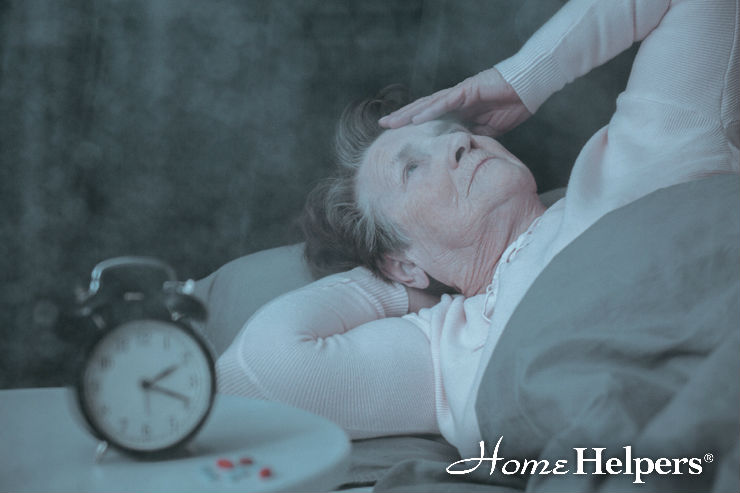We all know that adequate sleep each night is necessary to maintain good health. This is especially true for seniors. As your aging parent grows older, their immune system becomes more fragile, so sleep is crucial for them to stay healthy. Even though seniors tend to need less sleep in their older years, they should still get at least 6-8 hours of good rest each night. Read on to discover a few of the ways poor sleep can affect your health.
1. Weight Gain
Studies show that sleep deprivation causes weight gain. One such study focused on 2000 senior adults and showed that the average waist size increased by at least one inch on the seniors who got less than 6 hours of sleep each night. The people who got 9 hours or more of sleep functioned better, had improved memory, and better cardiac health. The study also showed that the good cholesterol increased significantly.
2. Lack of Sleep Affects Brain Function
Memory is greatly impacted by sleep. The brain functions best and communicates with the neurons that are responsible for learning new information, as well as retaining it. It’s no surprise that lack of sleep will have a negative impact on the brain with the most common effects being memory loss, cloudy thinking and even slurred speech. We need sleep to have sharp coordination and movement. Falls are much more likely if seniors don’t get enough sleep. Other problems can be increased depression, inability to control impulsive behavior, and paranoia/anxiety.
3. Lack of Sleep Hinders the Immune System
Most people will go to bed when they feel unwell. It’s the best way to recover from illness because our immune system is working and repairing what’s wrong while we sleep. It’s a medical fact that inadequate sleep will hinder the defenses of your immune system which will cause recovery to take longer. Infection is also more likely when you aren’t getting enough rest.
4. Losing Sleep Increases Blood Pressure
Did you know that loss of sleep for just one night can cause your blood pressure to be higher than normal? Studies show that the blood pressure is raised the entire next day after a poor sleep. Other medical conditions can be impacted by poor sleep as well. These include stroke and cardiovascular issues.
5. Increased Risk of Diabetes
Sleep is crucial to maintaining insulin levels in the body. Studies have proven that patients who don’t get the sleep they need cannot metabolize glucose as quickly as they should. The study also concluded that patients who got fewer than 5 hours of sleep were at an increased risk of becoming diabetic.
As you can see, sleep deprivation causes all kinds of issues in the long run. If your senior parent is struggling to get enough sleep, consider acquiring the services of a home health worker. One strategy they employ is to help keep your senior engaged and stimulated during the day so they can be tired and ready to sleep at night. They can also help develop good nighttime habits such as making sure all devices are turned off and creating a serene atmosphere in which to rest easily.
For more information on the impacts of poor sleep, please contact us today!
Home Helpers of Northwest Indiana is a locally-owned, trusted home health care agency and offers quality, compassionate senior in-home care services including home care assistance, 24-hour live-in care, personal care, companion care, respite care, Alzheimer's & dementia care, Parkinson's care as well as homemaker services in Cedar Lake, Chesterton, Crown Point, Dyer, Granger, Griffith, Highland, La Porte, Merrillville, Mishawaka, Munster, Saint John, Schererville, Valparaiso, Hebron, Lowell, Portage, Demotte, Elkhart, Hannah, Kouts, La Crosse, New Carlisle, Osceola, Rolling Prairie, South Bend, Union Mills, and Westville, Indiana.
Legal Disclaimer
This blog provides general information and discussions about medicine, health, and related subjects. The words and other content provided in this blog, and in any linked materials, are not intended and should not be construed as medical advice. If the reader or any other person has a medical concern, he or she should consult with an appropriately-licensed physician or other healthcare workers.
Never disregard professional medical advice or delay in seeking it because of something you have read on this blog or in any linked materials. If you think you may have a medical emergency, call your doctor or 911 immediately.
The views expressed on this blog and website have no relation to those of any academic, hospital, practice or other institution with which may have been mentioned or linked to in the article.

